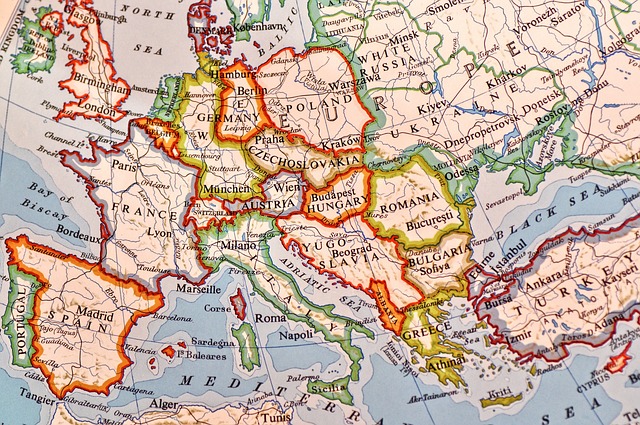
France borders Spain and Germany, among other countries.
Lindar is a verb whose etymological root is found in the Latin word limitāre . The concept is used to refer to those lands, properties, regions or buildings that are contiguous .
Some examples
The following three examples allow us to see the term border in context: “The Andes Mountains border Argentina with Chile” , “My uncle's pharmacy, as it borders a bar that operates 24 hours a day, is always located very busy” , “As it borders an area of the Paraná River where floods are common, the region is classified as flood-prone.”
Suppose a restaurant is located between a hotel and a museum . This means that, on the block in question, whoever walks first passes by the hotel, then by the restaurant and finally by the museum (or vice versa, if they move in the opposite direction). As you can see, the restaurant borders the hotel and the museum: it has one on each side.
Let's imagine that a poor state borders three rich states. Its inhabitants regret that, despite bordering wealthy nations, their country is immersed in misery.
Upcoming things
The notion of bordering also refers to two things that are close . In this case, it is common for the use of the term to be associated with symbolic or non- material issues : “His position seems to border on arrogance, although those who know him in depth affirm that this is not the case,” “The mayor tried to border the announcement with optimism to improve its image” , “The government's pressure on the Judiciary borders on being undemocratic” .
In this case, although it is a symbolic sense, in more than one sentence we can perceive the idea that one thing is "on the edge of" the other, a prepositional phrase that is defined as "very close to." Note that it has another version, in which the first word is the preposition a . Since the border of a country or the walls of a building are also considered an edge, a shore, saying that one adjoins another therefore means that it is on the edge of the other.
The first of the aforementioned examples tells us about a man who appears to be on the verge of arrogance, because evidently his personality has traits that are not very pleasant for those around him. However, his closest contacts assure that this assessment is not correct. In the second sentence, the subject intends to embellish his speech with optimistic overtones to minimize the negative impact that it would probably have had if he had presented it in a direct way .
Finally, we have an example in which the issuer states that the government is going through a situation that calls into question the effectiveness of democracy. He affirms that the Judiciary is being subjected to pressure that is not typical of said political system, but is on the verge of the opposite .

The remotest meaning of border is "to set limits."
Etymology and "limit"
As we mentioned at the beginning of the article, the origin of this term is found in the Latin limitāre , which it shares with our limit . This fact makes them doublets , that is, a pair of words that have the same etymological origin. We must point out that this phenomenon is very common in our language, especially with Latin heritage.
Although it may not seem like it at first glance, therefore, the purest meaning of bordering is "setting limits." Between its relative in Latin and its current version, this word went through more than one transformation, such as the loss of certain vowels and the change from M to N , once the first formed a group with D , which it began to replace. to the T : limitatione became limedar , which then lost the E to become limdar and, finally, reached the current lindar .
